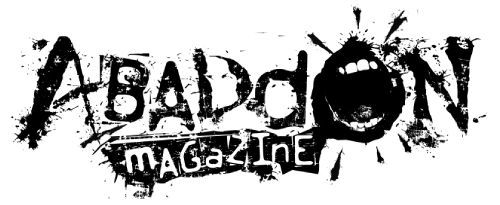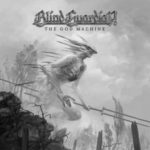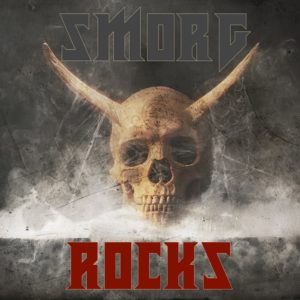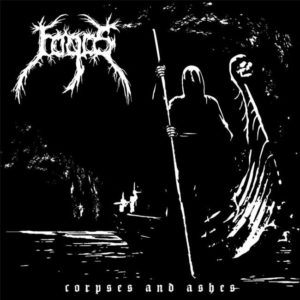 Label: Self released
Label: Self released
Date: July 29th, 2022
One thing I just cannot grasp. You’ve got ten tracks on your album. Eight of them have Greek deities, spirits or names for titles. And then there’s “Mortis”, an obviously Latin word. To top it off, there’s “Caronte”, which is Spanish for Charon. Why, in the name of Zeus, would you desecrate an otherwise enclosed record with such nonsense? I mean, it would be somewhat (not a whole lot) understandable if you sung “Caronte” in your native language, Spanish or Catalan, whichever. But it’s in English! And the other one could’ve been dubbed “Thanatos”, right? The word “mortis” isn’t even in the lyrics, so what held you guys from naming the song differently and aptly to the concept? It literally itches my brain and no amount of headbanging to your debut record is going to scratch it.
Oh, and there’s some serious headbanging involved here. Fogos might be a new name on the fervent Spanish black metal scene, but the experience behind the band members is obvious throughout. As is their commitment to black metal as a genre. The original one, mostly free of its initial thrash metal roots, cold and vicious. Pure second wave, Scandinavian styled, ferocious black metal. Which is, ironically, the second brain teaser for your friendly neighborhood reviewer. With obviously Greek thematic intentions and geographical determinant being Mediterranean, one would expect a much bigger Hellenic black metal input. Something like Nekrypteia, from Madrid, who combined influences from both Greece and Scandinavia. But no, Fogos goes for the purity of untouched ice and snow from the Arctic Circle.
Now, obviously, when seeking the said purity, Fogos needed to be careful not to let it slip into mimicry. In that respect, they were only partially successful. Most of the record follows closely in the footsteps of the greats. Bands like Marduk or Gorgoroth, when it comes to dark and sinister, yet unbridled aggression. On the epic, atmospheric side of things, early Satyricon comes to mind. Or Ancient, Dark Funeral, Immortal, Darkthrone… You can guess the exact feel Fogos practices on their debut recording. Basically, it’s the strength of a mountainous wall of sound – vastly aided by the spotless production work, neither too clean nor insufferably raw – combined with the chilling atmosphere achieved with the slightly monotonous tremolo riffing.
However, just when you think “Corpses and Ashes” is one more of those cliché records your ears are brimming with, Fogos pulls out a trick or two of their own. Okay, I’ll admit it, most of the album is fairly predictable and bearing of that “heard before” tone. Apart of a number of distinct moments that really raise an eyebrow towards the potential this quartet possesses. Namely, a number of lead guitar parts really bring out the melodic potential of the Spaniards. These too have their foundations in the originators of the genre, particularly their usage arrangement-wise, but they still retain impact on the listener’s ear.
Naturally, these melodies aren’t sliding away from the all-encompassing darkness of “Corpses and Ashes”. They remain sinister and threatening, but their ominousness comes from a whole different perspective.
Aside of the melodies, Fogos utilizes very deep and somber tones to accentuate certain fragments of their songs. Like that bass drenched bridge in “Deimos”, most notably. Segments like that one sit quite well with the mentioned production of the record to further strengthen the impact. It’s like those mountains keep rising, to the total dismay of the one looking to pass over it.
Also, pieces like this one are put to use in just about the perfect moment of particular tracks. Those are to emphasize the point. Thematic point, to be exact. In “Deimos”, this sounds like a dark, ungodly ritual, summoning who knows what to the surface. The chorus to the opener, “Akheron” has a whole other purpose to this mass of deep, rhythmical tones.
Still, with all this in mind, the biggest advantage of “Corpses and Ashes” lays exactly in the thematic approach. I know I’ve mentioned above that the titling of the songs could’ve been much better handled. There’s things to improve upon, definitely. Things to further think through next time. However, the choice to use various characters from the Greek pantheon as personifications for differing states of one’s mind, psychological conditions, thoughts and feelings… Well, suffice to say it’s not all that common of a find. Especially in combination with such a closely knit musical direction as Fogos is dipped in.
In that regard, I’m very glad I was able to track down the lyrics online. Those too might have been done better. Deeper, if nothing else. But they are still very powerful, striking and even when submitting to a cliché or two, fairly potent. Poetically speaking, Fogos will unlikely be cited in anthologies of black metal lyrics, but they will certainly not be ridiculed as many others must be. Far from it. They are somewhat deep, pretty meaningful and, should you immerse yourself, possibly even open for further interpretation. Commendable work, I’ll admit it.
Certain moments like those ghoulish chants of anguish (lousy, but I really have no better description) in “Mortis” are also present, invoking the later era Dimmu Borgir, but those are mere episodes. Though sounding strong, I can’t see a definite input by the famed Norwegians into Fogos’ soundscape. Nor do moments like that make a big difference whether you will like or hate this record.
With or without the chants, “Corpses and Ashes” remains a powerful outing for a debut force. Southern version of Norse black metal, if you will. Only, you will not hear any south here. But if you’re partial to what Scandinavia offered in the second half of the nineties, Fogos will not disappoint. Quite the contrary, in fact. The band needs improvement, but is good enough for a bit more than just a couple of spins. Exhibit A: I’m spinning “Corpses and Ashes” for almost a week now. Still not bored at all.
